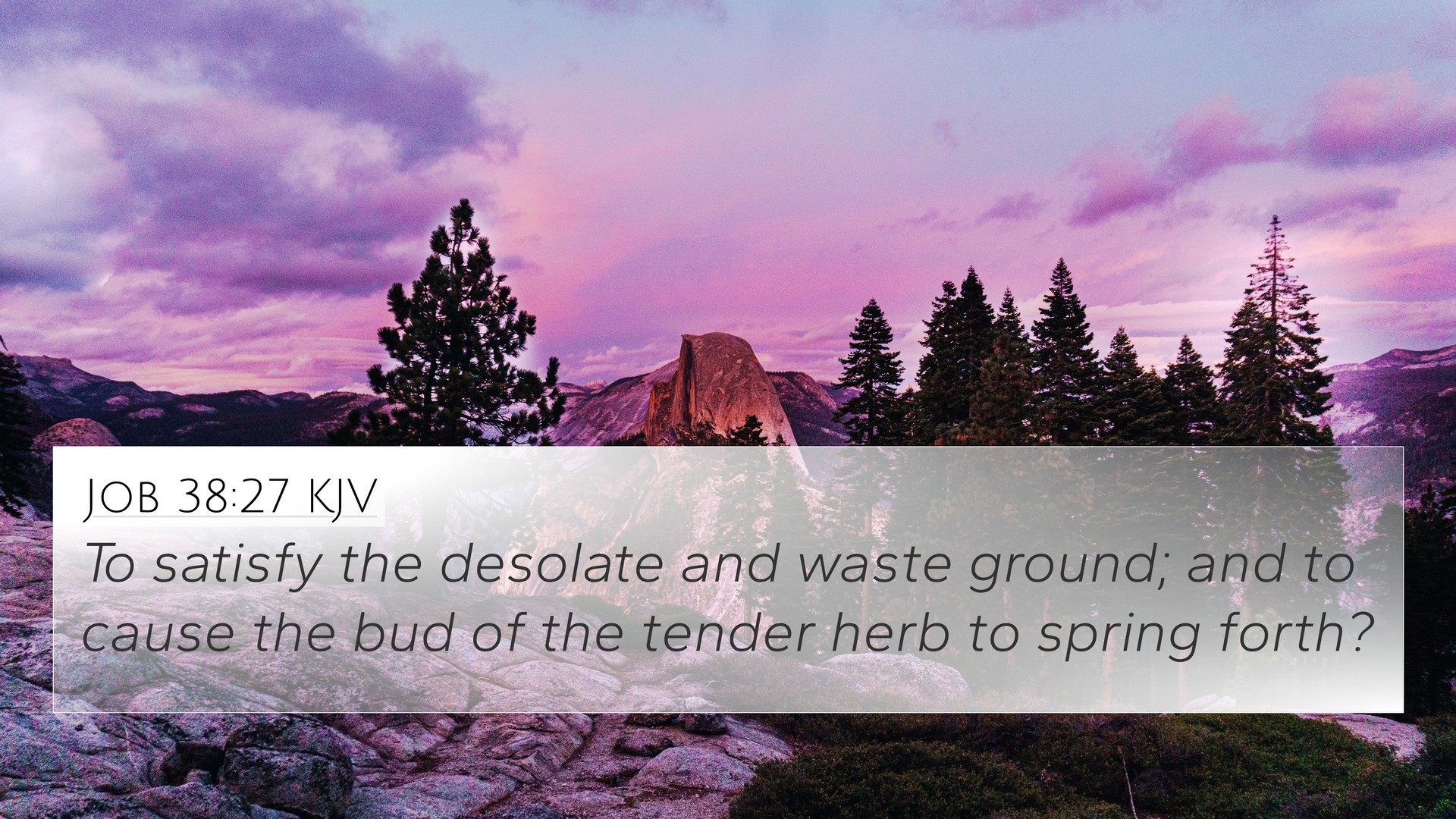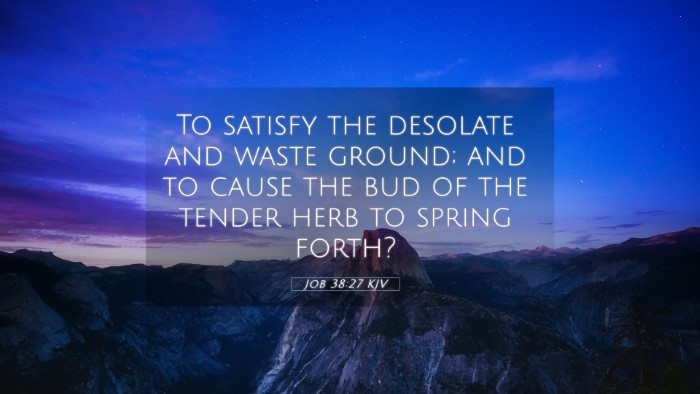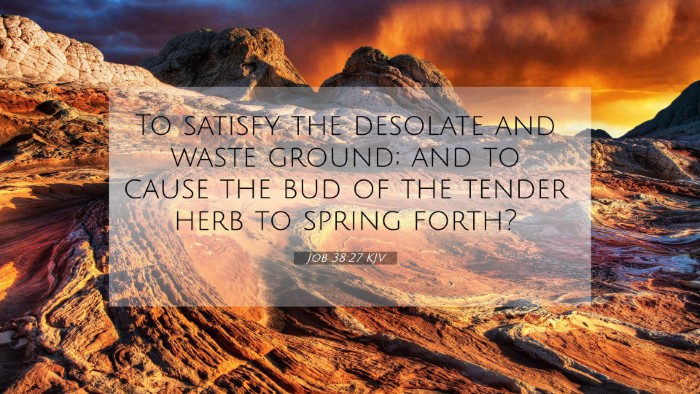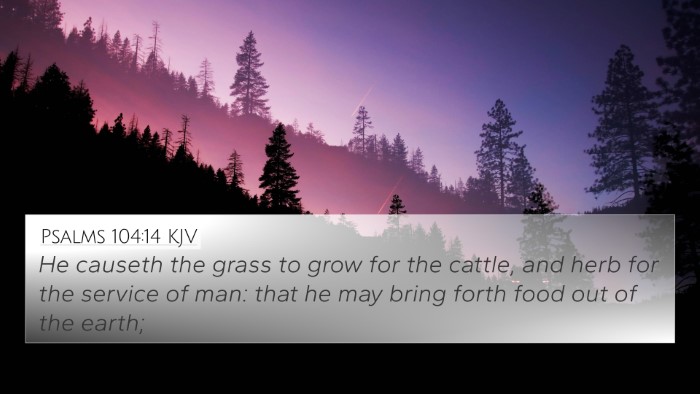Understanding Job 38:27
Job 38:27 states: "To satisfy a desolate and waste ground; and to cause the bud of the tender herb to spring forth?" This verse forms part of God's response to Job during a time of immense suffering and questioning. It reflects the overarching theme of God's sovereignty and the intricate workings of nature.
Summary of Insights
This verse emphasizes God's providential care for even the barren wastelands, illustrating His power to bring forth life and sustenance where there appears to be none. It highlights a few key themes derived from public domain commentaries:
- Divine Sovereignty: This verse asserts that God has authority over nature and is actively involved in its functioning. Matthew Henry notes that God's knowledge and power extend to all creation.
- Provision for Life: The passage illustrates God's provision for the earth, as noted by Albert Barnes, who emphasizes that God provides for even the most desolate places by allowing life to spring forth.
- Hope and Renewal: Adam Clarke interprets this verse as a message of hope which indicates that even in desolation, God can instigate renewal and new life.
Contextual Analysis
The context of Job 38 is fundamental to understanding its meaning. Job had been in deep anguish and was seeking answers to his suffering. In response, God presented a series of questions that underscored His omnipotence and the limitations of human understanding. This verse is part of that divine dialogue, contrasting human despair with divine capability.
Bible Cross References
Job 38:27 has several related verses that provide further insights into the themes of divine sovereignty, natural provision, and renewal:
- Psalm 104:14: "He makes grass grow for the cattle, and plants for people to cultivate..." - This verse parallels Job’s theme of God’s provision.
- Isaiah 41:18: "I will open rivers on the bare heights, and fountains in the midst of the valleys..." - Similar imagery reflecting God's ability to bring life to desolate places.
- Matthew 6:26: "Look at the birds of the air; they do not sow or reap or store away in barns, and yet your heavenly Father feeds them..." - Emphasizes God's care for His creation.
- 2 Corinthians 5:17: "Therefore, if anyone is in Christ, the new creation has come: The old has gone, the new is here!" - Reflects the theme of renewal that Clarke speaks of.
- Revelation 21:5: "He who was seated on the throne said, 'I am making everything new!'" - Further echoes the renewal aspect of God's creation.
- Luke 12:24: "Consider the ravens: They do not sow or reap, they have no storeroom or barn; yet God feeds them..." - Another affirmation of God’s provision.
- Job 38:26: "To cause it to rain on a land where no man is, on the wilderness, wherein there is no man;" - Directly precedes our verse and sets the context for God’s providence in desolation.
Inter-Biblical Dialogue
The connections between these verses illustrate broader biblical themes. The continual references to God’s provision and renewal create a rich tapestry of understanding regarding His nature and His relationship with creation. This understanding can enhance one's study by cross-referencing related scriptures.
Tools for Cross-Referencing
When engaging in a deeper study of Job 38:27, consider utilizing:
- Bible Concordance: A vital resource for finding specific verses and their connections.
- Bible Cross-Reference Guide: Helpful for discovering related verses across both the Old and New Testaments.
- Cross-Reference Bible Study: An effective method for drawing connections between scriptures.
- Bible Chain References: Following the thematic links provides insight into broader biblical narratives.
Conclusion
Job 38:27 serves as a profound reminder of God's sovereignty over creation and His continuous provision for life, even in desolation. By exploring this verse and its cross-references, one can gain a fuller understanding of God's character and the intricate ways He interacts with the world He created.




